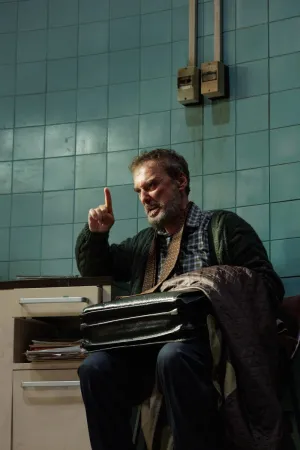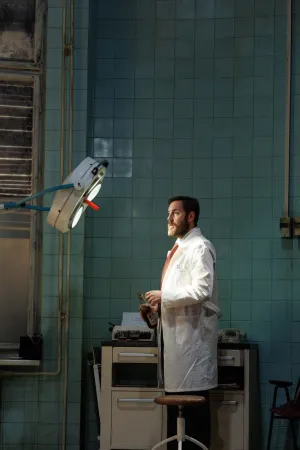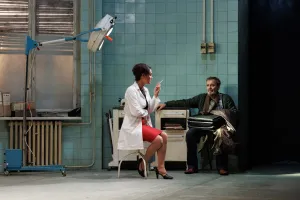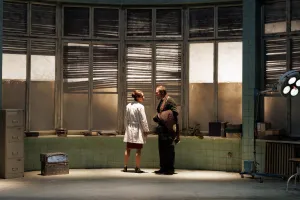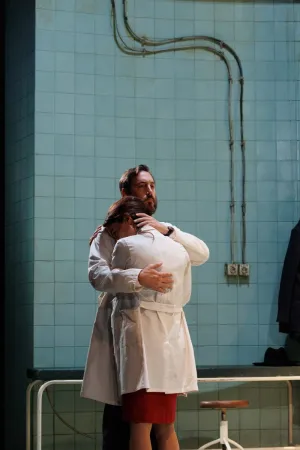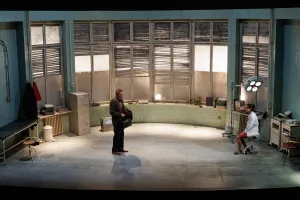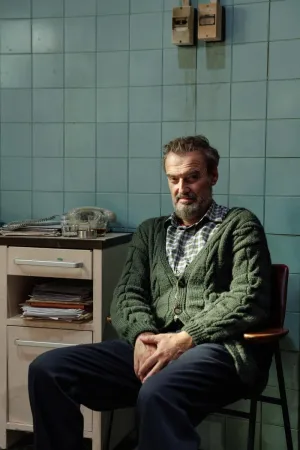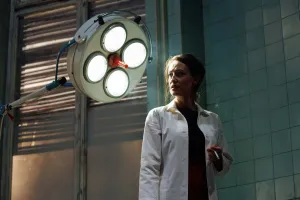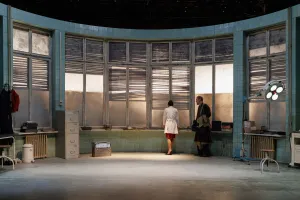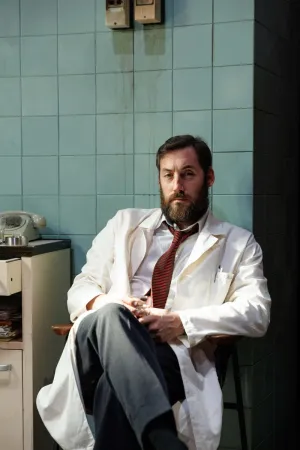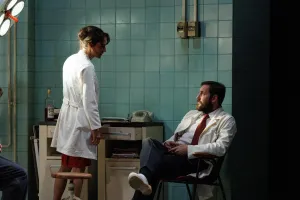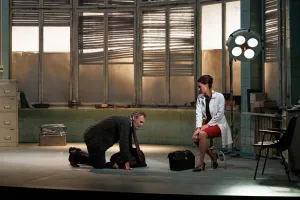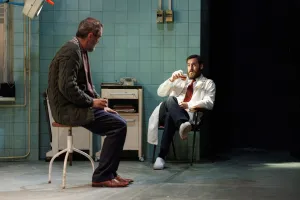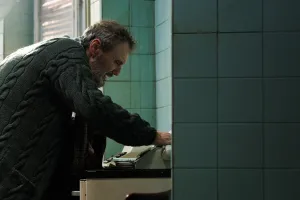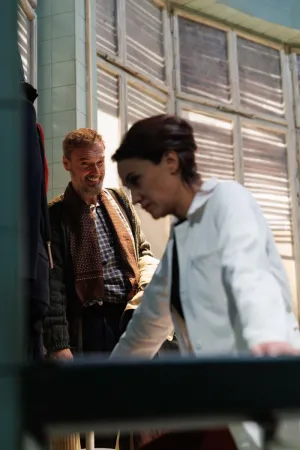The doll from the bed no. 21
drama by Đorđe Lebović
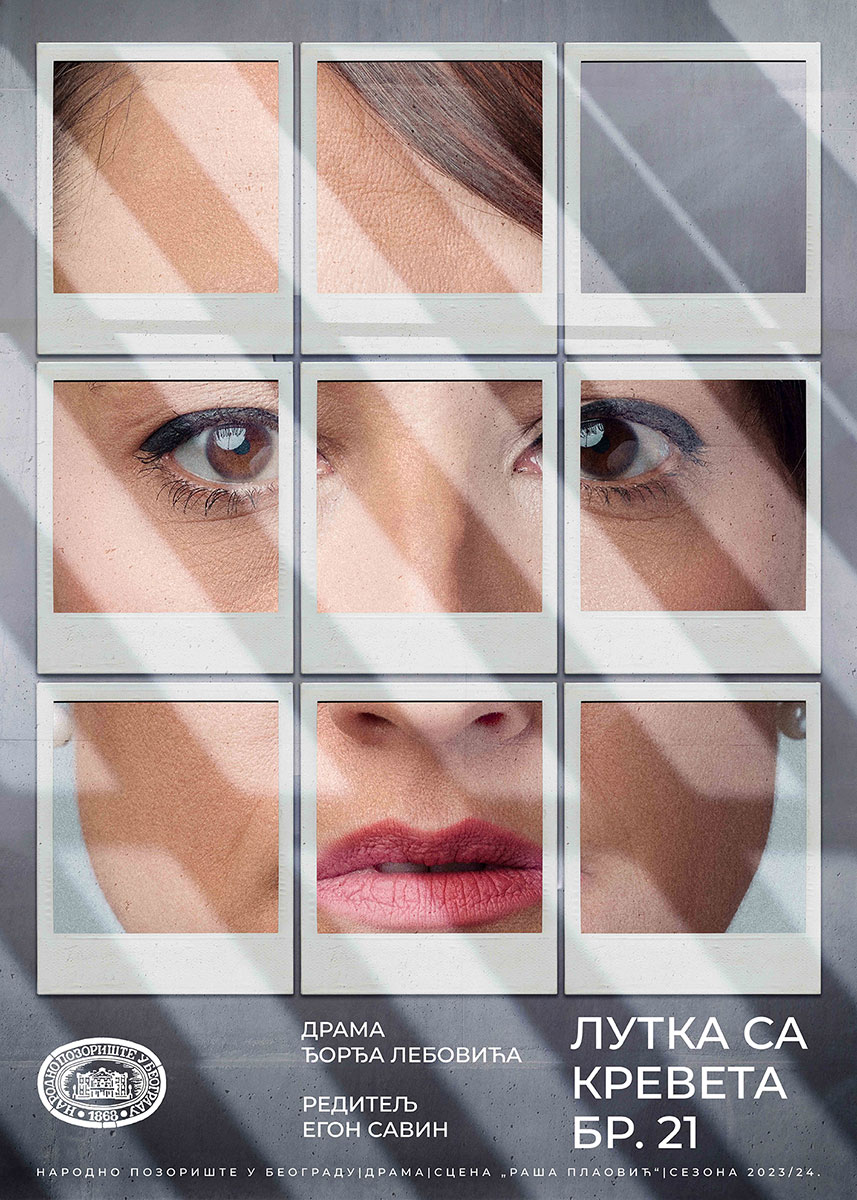
WORDS OF THE WRITER
"I am worried and terrified. I dread crimes that remain unpunished, sins that remain unrepented. I fear that innocence and guilt, justice and injustice, honour and dishonour will be equated, that executioners will be identified with the victims."
"There is nowhere to be read in the Bible about someone's motives and reasons for doing something, it only describes what was done. Therefore, from time immemorial, man is not what he keeps hidden in himself, but what he does. He is not responsible for his thoughts, but for his actions. And for what he could have done, but he didn't."
"By all valid legal standards, there is no human act that can undo or justify a crime."
(Written in Auschwitz at the beginning of April, and published in the "Danas" newspaper on April 13, 2001 and signed by Đorđe Lebović as No. A-12750)
FROM THEATRICAL NOTES
"Although in the period after World War II, several Jewish writers tried their hand at television, radio and theatre drama, Đorđe Lebović (1928-2004) was the one who achieved the greatest success in Serbian dramatic literature. His play Nebeski odred /The Heavenly Squad (1956), written in collaboration with A. Obrenović, marked an important milestone in recent Serbian playwriting. Obviously relying on dramatic attempts and works that preceded modern theatre, The Heavenly Squad is influenced by the idea of tragic absurdity, based on which the contemporary world avant-garde, in one part, builds its visions of helplessness and alienation. Its spine-chilling and morbid idea of the absolute moral destruction of man contains almost the same tragic projection of dehumanisation and absurdity that many avant-garde texts of modern world writers carry within them... The certainty of the dramaturgical procedure in The Heavenly Squad, Hallelujah (1964) and Victoria (1968) indicate that Lebović's drama is best shaped when universal or mythical meaning is given to the elements of the real world and true tragedy, without schematic constructions and empty verbalism, only by the classical method..."
(Predrag Palavestra, Jewish Writers in Serbian literature, Belgrade, 1998.)
"Because no matter how much the past belongs to the past, it creeps into the present, brings restlessness and fear before the uncertainty that, together with them, lies ahead for all of us." Lebović is not a pessimist, but neither is he a declarative optimist. His passion for the truth and discovery - what is man - gives him the strength to draw the essence from certain situations and confront it with the actions of individuals, so that in the end he bitterly asks - will man ever return to himself..."
(Petar Volk on the play Victoria, Književne novine, Belgrade, 1968.)
"That is why Lebović first condemns war as somethings essentially inhumane, a war in which reference to ethical norms is ultimately illusory and even cynical. As if the writer says that there is no moral winner on the battlefield from which corpses are removed after the battle is over. Judicial processes are really not the kind of force that should be expected to defend the value and dignity of justice, nor will their effectiveness prevent people from starting to kill again. That is precisely why Lebović's drama attempts to awaken something else and deeper in a man, a sense of responsibility and humanity, a feeling that will prevent this mechanism of cruelty to take effect at all..."
(Muharem Pervić on the play Victoria, Politika, Belgrade, 1968)
"I would like it if the common theme of my works could be precisely determined. However, I only know that I am above all interested in the unsolved and wrongly solved problems of our time. It seems to me that I could be cruel, merciless and adamantly drastic, if it were the price to reach at least a grain of real truth, and if such an expression would hide the potential possibility to convincingly reveal even the tiniest bits of human graciousness and gentleness. In this life of ours, we need something more than untested, mechanical faith in human goodness."
In this search for that shaken faith in goodness, there is probably also the secret of the deepest motivations that drive Đorđe Lebović to write and communicate to the world the dramas that stir inside him."
(Jovan Ćirilov, from the preface to the play Hallelujah, Serbian National Theatre in Novi Sad, 1964)
Premiere performance
Premiere October 17, 2023
"Raša Plaović" Stage
Đorđe Lebović
THE DOLL FROM THE BED No. 21
Directed and Adapted by Egon Savin
Set Designer Vesna Popović
Costume Designer Jelena Stokuća
Music selected by Egon Savin
Stage Speech Ljiljana Mrkić Popović
Producers Miloš Golubović, Olivera Živković
Professional Associate Petar Antonović
Stage Managers Ana Zorić, Sandra Rokvić
Prompters Ljubica Raković, Marija Nedeljkov
Assistant Set Designer Anja Matković
Premiere cast:
Emil Grabner Nikola Ristanovski
Vilma Rajner Jelinek Zorana Bećić Đorđević
Jelinek Petar Strugar
Stage Manager Ana Zorić, Sandra Rokvić
Prompter Ljubica Raković, Marija Nedeljkov
Assistent Set Designer Anja Matković
Make-Up Marko Dukić
Stage Crew Chief Zoran Mirić
Sound Operater Perica Ćurković
Decor made in the workshops of the National Theatre in Belgrade with the participation of 4th year students of bachelor’s and master's degree academic studies at the Department of Scenography of the Faculty of Applied Arts of the University of Arts in Belgrade.

